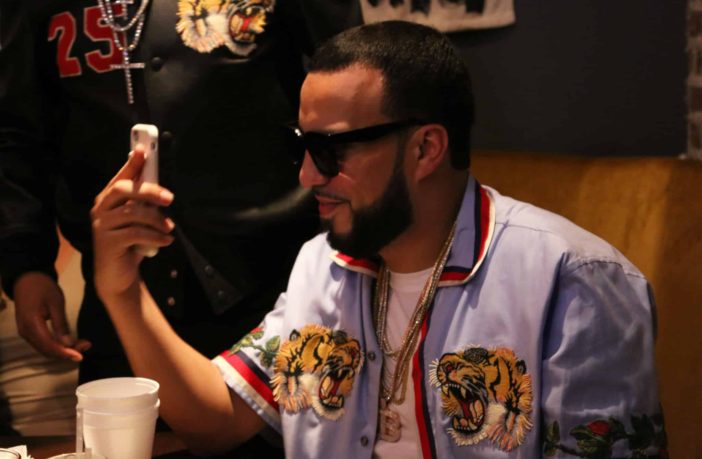The new French Montana documentary, For Khadija, is an extraordinary journey through his life, chronicling his early struggles as an immigrant in America to his success in the music industry. Through it all, the Moroccan-born rapper pays tribute to the most important woman in his life: his mom Khadija Guled.
Born Karim Kharbouch, Montana put his trust in the hands of pals Drake and Diddy, who executive produced the project, and director Mandon Lovett to tell his tale. Here, Lovett shares what it took to bring Montana’s incredible life story to the screen.
EBONY: Tell us why you were drawn to this project and French Montana’s origin story.
Mandon Lovett: I felt like it humanized a rap artist in a way I hadn’t seen before. We often hear about rap artists coming from the hood, then selling drugs, maybe going to prison, then using rap to uplift themselves. French’s story has some of that, but it’s a much more layered, global journey with a rich family element. French being a Moroccan immigrant, landing in the U.S. at 13 speaking no English and then being abandoned by his father, his mother sacrificed so much. Add all the trials and tribulations of being a rap artist, French’s story is truly unique. I’m fascinated by the idea that artists have deeply layered, complex stories beyond their musical arc.
What are some of the sacrifices French’s mom made to support her children?
Khadija came from an upper-middle-class life in Morocco to going on welfare upon coming to the U.S. She took on all sorts of under-the-table/off-the-books odd jobs to keep a roof over her sons’ heads. One job in particular, working at a halal chicken market, was particularly hard. She was also in the States alone, without family, and she stayed for 25 years before returning to Morocco to reunite with them.
What will we be surprised to learn about French’s early life before fame?
Interestingly enough, French was part of an upper-middle-class family in Morocco before moving to the United States. They lived a good, relatively stress-free life. But, like many immigrants, things shifted dramatically once they arrived in the U.S. They were essentially starting from scratch and the bottom.
Who did you interview for this documentary, and what intriguing tidbits did they share?
We interviewed many of his industry counterparts from Drake to Max B, French’s uncles and even his estranged father. French has such an incredible cast of characters in his life. It was a blessing to gain access and earn that trust.
How did you approach telling his story in a new and fresh way?
I wanted the story to feel as intimate and personal as possible, so I focused on French’s close family, friends, and associates. French has an incredible musical catalog, but if you want to know about his music, go and listen to it. What separates this film from many artist docs is that I wanted to tell a personal story that was much deeper than music.
For Khadija Director Mandon Lovett. Image: Daniel Hall.
Where is French going next, in your eyes?
French Montana is an unstoppable force. Whatever he sets his sights on, he can achieve. I truly believe that. He’s passionate about making music and does that consistently. He’s a consummate artist. But I know he wants to do other things. Maybe film and television? The sky is the limit.
What does French think of the documentary?
I think he’s happy with how it turned out. He was finally ready to share this side of his story. Of course, in an 80 to 90-minute feature-length format, you can’t tell every piece of the story. If French has his way, there will be a part two!



